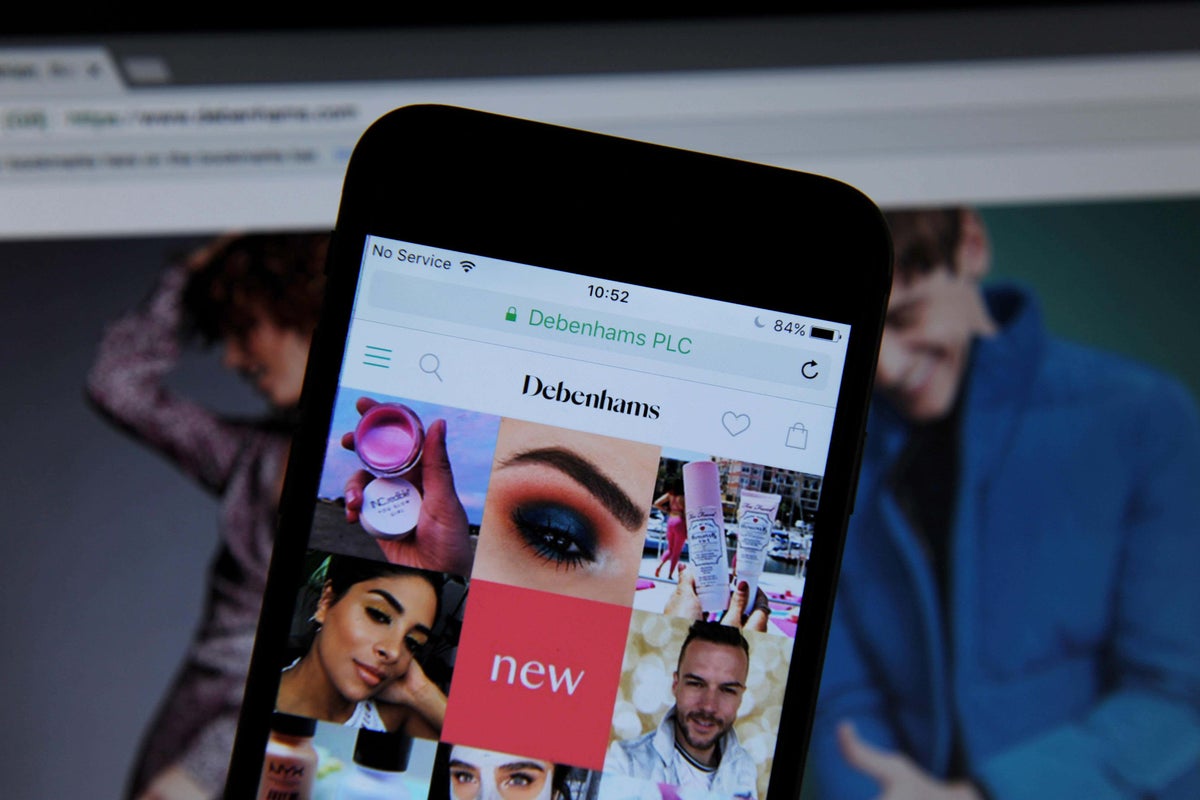Business
Debenhams dealt blow as shareholder Frasers blocks three votes at AGM

Debenhams Group has been hit by fierce opposition from shareholder and retail rival Frasers Group at its annual general meeting.
The online retail firm, which was recently renamed from Boohoo, saw three resolutions fail to pass at its meeting on Friday as a result.
The company also saw a heavy vote against its payment plans for bosses at the meeting, but ultimately saw the deal pass.
It is the latest move in an increasingly bitter row between Debenhams and Mike Ashley’s Frasers Group, which owns an almost 29% stake in Debenhams.
Frasers voted against a raft of resolutions at the AGM in its latest signal over its frustrations regarding the performance of the business, which has seen its share value drop by more than half over the past year.
Debenhams said after the meeting that its resolutions 11, 12 and 13 did not pass at the meeting after failing to reach the necessary 75% due to votes from a “major competitor”, understood to be Frasers.
Two of the blocked votes related to the “disapplication of pre-emption rights”, which related to the process allowing companies to issue new shares in order to raise funds.
The third vote related to the ability of Debenhams to purchase more of its own shares.
In a statement, Debenhams said: “These special resolutions were in customary form and of a type which are regularly recommended by boards as being in the best interests of all shareholders.
“Whilst these special resolutions have not been passed, the board would like to reassure shareholders that this is not expected to have any material impact on the group going forwards.”
The company’s board of directors said they are focused on delivering the group’s “turnaround strategy”, which has seen the company consider the sale of its PrettyLittleThing brand.
A vote on the payment packages for bosses at Debenhams also saw significant opposition, led by Frasers, but passed after receiving 56.5% of votes in its favour. It needed a majority to pass.
Business
SEBI Proposes Overhaul Of Gold And Silver ETF Price Bands After Sharp Swings

Last Updated:
SEBI proposes stricter base price and band rules for gold, silver ETFs, including cooling-off periods after sharp global price swings to curb volatility.


Amid Global Commodity Volatility, SEBI Plans New Price Band Rules for Gold, Silver ETFs
The market regulator has sought to curb extreme volatility in gold and silver Exchange Traded Funds (ETFs) by proposing changes to the base price and price band framework. Currently, there are no separate price bands for ETFs aligned with their underlying assets, making them vulnerable to sharp price movements.
The proposal comes after sharp volatility in gold and silver ETFs triggered by fluctuations in global commodity prices. On some days, these ETFs fell by over 15%, while on others, they recorded sharp gains.
Stock exchanges currently apply a fixed price band of plus or minus 20% on the base price of ETFs, except for Overnight ETFs investing only in TREPs, which have a price band of plus or minus 5%.
Moreover, the base price for applying price bands to ETFs is taken as the T-2 day closing Net Asset Value (NAV) by exchanges, instead of the T-1 day closing NAV or price, as is the case with indices and individual stocks. This creates a challenge, as the closing NAV of ETFs typically differs between T-1 and T-2 days. Corporate actions such as bonuses and dividends are adjusted manually, increasing the risk of errors.
What Are the Key Proposals?
SEBI has proposed that the base price be determined using either the closing price of the ETF on T-1 day (weighted average price of the last 30 minutes), the closing NAV of T-1 day, or the average indicative NAV (iNAV) of the last 30 minutes of T-1 day.
Further, the regulator has proposed an initial price band of plus or minus 10% for equity and debt ETFs, which can be flexed up to plus or minus 20%. A cooling-off period of 15 minutes will apply, and up to two flexes will be allowed in a day.
For gold and silver ETFs, the regulator has proposed an initial price band of plus or minus 6%, which can be flexed up to plus or minus 20%. This will also include a 15-minute cooling-off period.
February 14, 2026, 16:08 IST
Read More
Business
Petrol and diesel prices likely to rise – SUCH TV

Oil and Gas Regulatory Authority (OGRA) forwarded a summary to the federal government suggesting an increase of Rs4.39 per liter in petrol price for the next fortnight.
After approval from the federal government, one liter of petrol will be sold at Rs257.56 instead of Rs253.17 per liter.
The price of high-speed diesel (HSD) will be increased by Rs5.40 per liter.
After approval, the price of one liter of high-speed diesel will increase by Rs268.38 to Rs273.78.
The proposal to increase the price of kerosene by Rs4 per liter is also on the cards.
The OGRA also recommended increasing the price of one liter of light diesel by Rs6.55.
The new prices of petroleum products will be effective from February 16, 2026.
Due to tension between the USA and Iran, petroleum prices are likely to increase further.
Business
Rising vet costs leave Birmingham charity with £400k bill

The group, based in Solihull and Wolverhampton, says its vet bills are costing them more.
Source link
-

 Entertainment1 week ago
Entertainment1 week agoHow a factory error in China created a viral “crying horse” Lunar New Year trend
-

 Business4 days ago
Business4 days agoAye Finance IPO Day 2: GMP Remains Zero; Apply Or Not? Check Price, GMP, Financials, Recommendations
-

 Tech1 week ago
Tech1 week agoNew York Is the Latest State to Consider a Data Center Pause
-

 Tech1 week ago
Tech1 week agoNordProtect Makes ID Theft Protection a Little Easier—if You Trust That It Works
-

 Tech1 week ago
Tech1 week agoPrivate LTE/5G networks reached 6,500 deployments in 2025 | Computer Weekly
-

 Fashion4 days ago
Fashion4 days agoComment: Tariffs, capacity and timing reshape sourcing decisions
-

 Business1 week ago
Business1 week agoStock market today: Here are the top gainers and losers on NSE, BSE on February 6 – check list – The Times of India
-

 Business1 week ago
Business1 week agoMandelson’s lobbying firm cuts all ties with disgraced peer amid Epstein fallout





